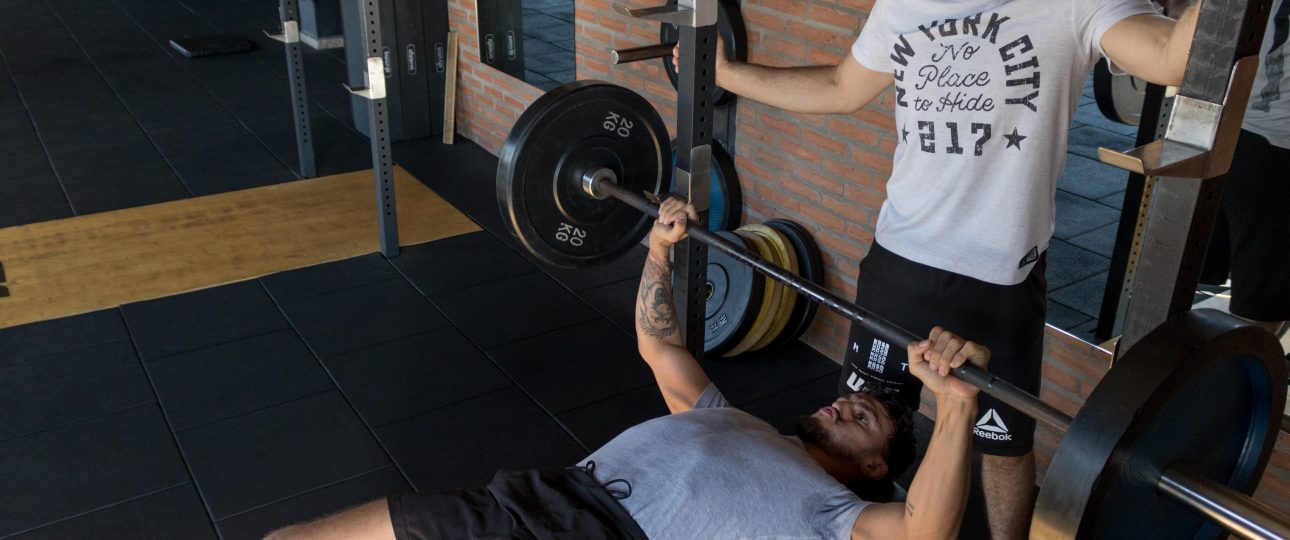
How to Become a Personal Trainer: A Comprehensive Guide
Fitness and gym-going has become a passion since the last century and in this age of sessile lifestyle, fitness and workout is an absolute necessity. If you are one of the gym guys then you may be well aware of the role and importance of personal trainers. A personal trainer is an individual with expertise in fitness and workouts and who works with other gym members for achieving their health and fitness goals. In addition to gym environments, personal trainers can also work independently and even for corporations.
Nowadays, the profession of personal trainer is in high demand for obvious reasons. Personal trainers not only devise workout plans but they also look after other aspects of human fitness like guidance on nutrition, lifestyle changes, and motivational techniques.
Personal trainers work with clients to design and implement fitness plans that are tailored to their specific needs and goals. If you’re interested in fitness and enjoy helping others reach their fitness goals, then a personal trainer career might be the perfect choice for you. Here, we are going to discuss how any gym member can go for the personal trainer career so read on.
Benefits of Being a Personal Trainer
The profession of personal trainer can be beneficial in many aspects. Not only this career is financially rewarding but you can also enjoy other perks like;
a) Flexible Schedule
Besides high salaries, personal trainers have a flexible schedule as it is not a nine-to-five routine job. A personal trainer can set the schedule according to his convenience. In addition, the client can also request a suitable workout schedule.
b) Growth Opportunities
Personal training is a growing industry and therefore there are ample career advancement opportunities in this industry.
c) Helping Others
Perhaps one of the greatest benefits of this profession is its philanthropic aspect. As a personal trainer, you will be helping others to achieve their dreams. A personal trainer helps clients to achieve their health and fitness goals.
Requirements to Become a Personal Trainer
Like any other profession, the profession of personal trainer also requires some relevant education. In addition, you may also need some certifications and practical experience for ensuring your success in the field.
1) Educational Qualifications
The educational requirements for personal trainers may vary depending on the employer and location, however, some common elements aspiring trainers should consider. To begin with, most personal training certificate programs require at least a high school diploma or GED. But only a high school diploma may not help you attain professional prominence.
Therefore, pursuing higher education in fitness-related fields like exercise science, kinesiology, or nutrition can significantly enhance a personal trainer’s career prospects. Employers often prefer candidates with an associate’s or bachelor’s degree in these areas, as it demonstrates a deeper understanding of the human body, movement, and overall health.
2) Additional Certifications
Formal education even a bachelor’s degree may not help you secure a job as a personal trainer. In addition to formal education, one must strive to secure a nationally recognized certification. Every country has its fitness industry-specific certification courses. These certifications not only validate a personal trainer’s knowledge and skills but also provide credibility and assurance to clients and employers.
For example, in Missouri, personal trainers are required to have completed high school or earned a GED, be trained in CPR and First Aid, and earn a certificate, degree, or diploma in personal training, kinesiology, or exercise science. Similarly, in Kansas, personal trainers need a degree in a relevant field of study related to personal fitness and a national certification as a personal trainer.
For gaining prominence in the field, you must strive for advanced certifications after passing the essential certificate courses. The advanced certifications include certificate courses like level four elite trainer courses. These advanced courses typically cover more specialized topics and techniques, allowing trainers to cater to specific client needs and preferences.
3) Field Experience
After relevant education and certification courses, personal trainers need to acquire practical experience. Any aspiring personal trainer can gain practical experience by opting for an internship at any renowned fitness center. You may also work as an assistant trainer for a while before switching to a full-fledge personal trainer role.
This real-world experience allows aspiring trainers to develop their teaching, communication, and customer service skills, which are vital for building rapport with clients and helping them achieve their fitness goals. Practical experience is an essential prerequisite for becoming a successful personal trainer.
4) Other Prerequisites
In addition to education, certification, and practical experience, there are some other prerequisites that one must consider before becoming a personal trainer. The two most-important prerequisites falling in this category are CPR first aid certifications.
After attaining these two additional certifications, personal trainers should also consider obtaining liability insurance to protect themselves in case of an accident or injury during a training session.
Developing Skills as a Personal Trainer
- Understanding Anatomy and Physiology
Understanding human anatomy and physiology is critically necessary for personal trainers. A solid understanding of anatomy and physiology can help personal trainers to design effective workout routines and prevent injuries.
- Designing Effective Workouts
The success of personal trainers depends on designing effective workouts that are tailored to their clients’ needs and goals. For designing effective workouts, personal trainers need to consider:
- Fitness Assessments
An initial fitness assessment of clients is needed for determining clients’ current fitness levels and identifying areas that need improvement.
- Goal Setting
After the initial fitness assessment, setting realistic and achievable goals with clients is essential for designing an appropriate workout.
- Program Design
Finally, designing workout programs that are challenging, yet achievable for clients is the last step in designing a customized workout plan.
- Communication and Motivation Techniques
Another crucial skill for success in the fitness industry is excellent communication skills. Personal trainers should have excellent communication skills and be able to motivate clients to achieve their goals.
- Business and Marketing Skills
Finally, marketing skills are also required for optimum projection of one’s skills. Personal trainers should also have a basic business and excellent marketing skills to attract and retain clients.
Finding Employment as a Personal Trainer
After completing your educational and experience prerequisites, now you are ready for embarking on your practical career path. You can either opt for a job in gyms or fitness centers or can start your own business.
Job Opportunities in Gyms and Fitness Centers
Generally speaking, gyms and fitness centers are the most common employers of personal trainers. Many gyms also offer additional training and certification opportunities for personal trainers.
Starting Your Own Business
However, if for some reason, you want to start your own business then here is a simple guide for you.
i) Developing a Business Plan
Preplanning is a sure recipe for success in any field but in business, careful and realistic planning is a critical element. A solid business plan is the first step to creating your own business in the fitness industry. A business plan will help you establish your goals, target market, services, pricing strategies, and marketing plans. It is important to define your niche and identify what sets you apart from your competitors in the industry.
ii) Obtaining the Required Licenses and Permits
A good business plan will however will not be enough if you don’t have the necessary permits and licenses. To operate a personal training business, you will require certain licenses and permits from your local government. These may include a business license, tax identification number, liability insurance, and professional certification. So, go for these legal documents before proceeding further.
iii) Choosing a Location
After obtaining all the legal documents and permits for your business, now you have to choose a suitable location for your workout sessions. You can choose to offer your services either at a gym or fitness center, in your home, or at your client’s homes. It is important to ensure that the location you choose is safe, convenient, and accessible to your clients.
iv) Establishing Your Brand
After selecting an appropriate location, you will need to create a strong brand identity. For establishing your brand identity, you may need to develop a memorable logo, website, and social media presence that reflects your business values, mission, and services. Social media platforms will help you to expand your brand awareness. Spend some capital on social media paid advertising campaigns in this stage.
v) Marketing Your Business
Once you have established your brand, it is time to market your business. There are many ways to promote your services, including word of mouth, referrals, social media, and advertising. Consider offering promotional deals or discounts to attract new clients.
vi) Providing Excellent Customer Service
After you have established your business, excellent customer service will flourish your business. Always be professional, punctual, and reliable. Listen to your client’s needs and tailor your services to meet their fitness goals.
Starting your own personal training business can be a challenging but rewarding experience. By following these steps and putting in the hard work, you can establish yourself as a successful personal trainer and help others achieve their fitness goals.
Finding and Retaining Clients
If you are either employed by a gym or in your own business, your client base will define you in the long term. If you have built a large client base then your career prospects will be brighter and vice versa. As soon as you get into the business, start building your client base. Finding and retaining clients can be a challenge, but with the right strategies, you can grow your business and create a loyal following.
One of the most important things to remember when it comes to working with clients is that people are looking for more than just a workout. They want someone who can provide motivation and support, as well as customized training plans that meet their unique needs and goals. Besides offering these extra and deemed services, you will need to establish contacts within the fitness community. Networking will fetch you new clients and will improve your professional image. Join local fitness groups and attend events related to health and wellness.
You can also offer free trials or discounts to attract new clients. Once you’ve started working with clients, it’s important to stay engaged and build strong relationships with them. This means taking the time to understand their goals and preferences and adjusting your approach accordingly. Regular communication, whether through email or social media, can help you stay connected and build trust.
Another key to retaining clients is to continue learning and growing as a trainer. Attend workshops, conferences, and other training events to stay up-to-date on the latest techniques and trends in the industry.
Advancing Your Career as a Personal Trainer
- Continuing Education and Professional Development
If you are a renowned gym-trainer or have an established business in the fitness center, you will need to remain ahead of your competition. For remaining ahead of your competition, you will need to be abreast with the latest concepts and technological advancements in the industry. For this, you will have to attend conferences, workshops, and continuing education courses.
- Specializing in a Niche Area
Health and fitness is an elaborate industry and for success in this career, you have to specialize in a niche. You may choose any niche like sports performance, rehabilitation, or senior fitness, to attain recognition among your fellow personal trainers.
- Pursuing Higher Education
In addition to specialization in a specific niche, you can pursue higher education, such as a degree in exercise science or kinesiology, to enhance your knowledge and expertise further.
Maintaining Professionalism as a Personal Trainer
A) Ethical Standards for Personal Trainers
Adherence to ethical standards is the fundamental prerequisite for maintaining professionalism in the fitness industry. Some of the ethical considerations in the fitness industry are maintaining client confidentiality and avoiding conflicts of interest.
B) Building and Maintaining Client Relationships
Personal trainers should focus on building and maintaining strong relationships with their clients to ensure client satisfaction and retention.
C) Staying Up-to-Date with Industry Trends and Research
Personal trainers should stay up-to-date with the latest industry trends and research to provide the best possible service to their clients.
Concluding the debate
A personal trainer career is both financially rewarding and a healthy profession. Becoming a personal trainer requires a combination of education, certification, and experience. In addition to technical skills, personal trainers should also possess excellent communication, motivation, and business skills to succeed in this rewarding and challenging career.





